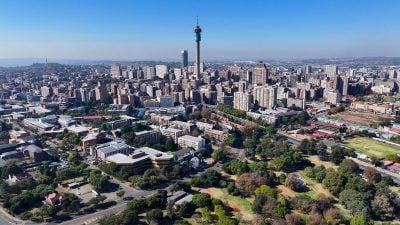Global compact for SDGs
Clearly, if there is one lesson learned, it is that setting development goals is much easier than achieving them. Increasing development
effectiveness under the SDG framework will require that African countries learn more from successful nations how to effectively align public and private sector interventions in order to sustainably achieve the desired
development goals. This should be the first and overarching priority.
The second set of priorities for African countries should be moving away from the one-dimensional approach to project design and instead embrace a multidimensional and sectoral approach. Indeed, the sustainable solution to many diseases, especially of vector and waterborne diseases such as malaria and cholera, lies in the development of appropriate infrastructure (e.g. effective sanitation and drainage systems).
The third set of priorities should be to develop the right infrastructure (particularly scientific and technological) for greater access to, and use of frontier technology for, sustainable development. African countries should also strive to increase domestic resource mobilisation for sustained investments by strengthening public-private partnerships and broadening the tax base.
Finally, they should strengthen ownership of their development process, taking into account the fact that sustainable development is first and foremost an endogenous process that is rooted in countries’ institutions, resource endowment, people’s aspirations and culture.
If achieving the SDGs is predicated on meeting the challenges of climate change, then the international community will have to bear greater responsibility, given Africa’s low global carbon footprint. Industrialised economies, which account for the lion’s share of greenhouse gas emissions, should shift their production processes and adopt new ones which are more environmentally friendly.
They should also honour their commitment to technology transfers to ensure that all countries (both developed and developing) constantly operate on new and frontier technologies which are cleaner, greener and more efficient.
Developed countries should also honour their commitment to raise their contribution to development financing, by allocating at least 0.7% of their gross national income to overseas development assistance.
Last but not least, these countries should also embrace a more altruistic approach to international development, where donor financing does not undermine ownership of the development process in donor-recipient nations.
Moving away from the prevailing mindset, which assumes that ‘he who pays the piper calls the tune’, is a prerequisite because sustainable development cannot be achieved in the absence of strong ownership by those who will always have to dance to the tune. Ultimately, meeting the challenges of sustainable development will require a global shift towards a more altruistic approach, whereby successive generations are more and more accountable to one another.
Progress on this new inter-generational challenge will require escaping from old development frameworks where the quest for growth has been the paramount objective pursued at all costs and where technology has been the driver of comparative advantage in a zero-sum game. Dominated by asymmetric distribution of wealth and access to technology, these old development paradigms have been sources of environmental degradation and growth volatility. They have also contributed to the persistence of poverty and global inequality.
Even the most zealous of climate change sceptics now recognise that the current development framework has become unsustainable and, potentially, an existential threat to the survival of human civilisation.
The proposed SDG framework provides the path to move the world onto a new trajectory. Embracing it will not only enhance the prospects for sustainable development in Africa; it is also likely to create the conditions for a better world, where commitment to sustainability (environmental, fiscal and social) across space and over time, are no longer just idealistic concepts entertained by marginal utopists, but aspirational goals for all.
* Dr Hippolyte Fofack is a fellow of the African Academy of Sciences and an economist with the World Bank Group.
Want to continue reading? Subscribe today.
You've read all your free articles for this month! Subscribe now to enjoy full access to our content.
Digital Monthly
£8.00 / month
Receive full unlimited access to our articles, opinions, podcasts and more.
Digital Yearly
£70.00 / year
Our best value offer - save £26 and gain access to all of our digital content for an entire year!
 Sign in with Google
Sign in with Google 


